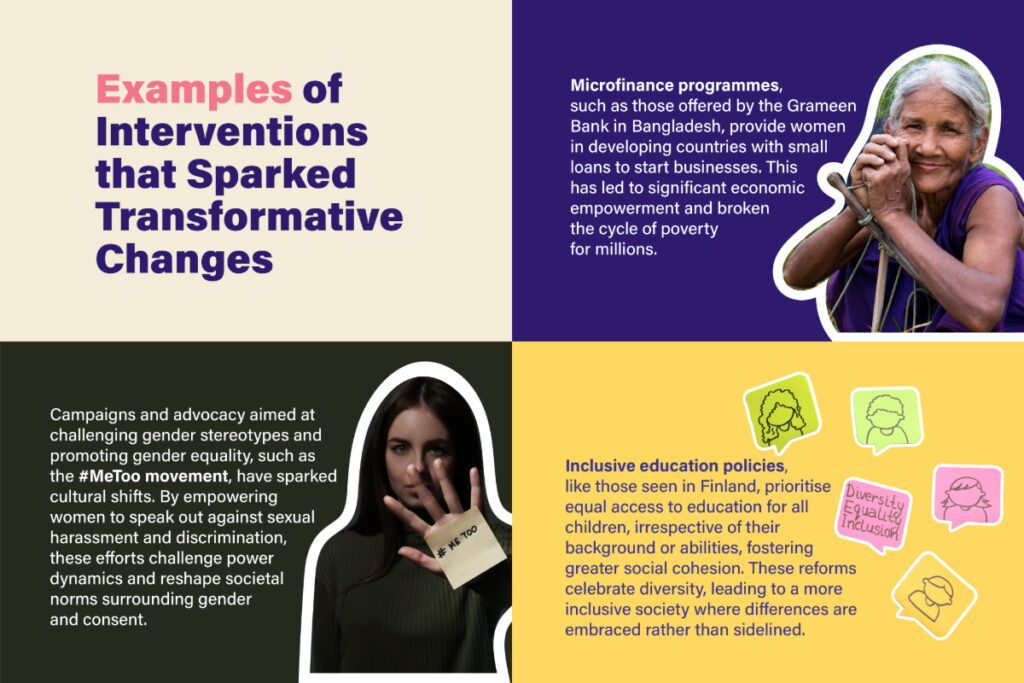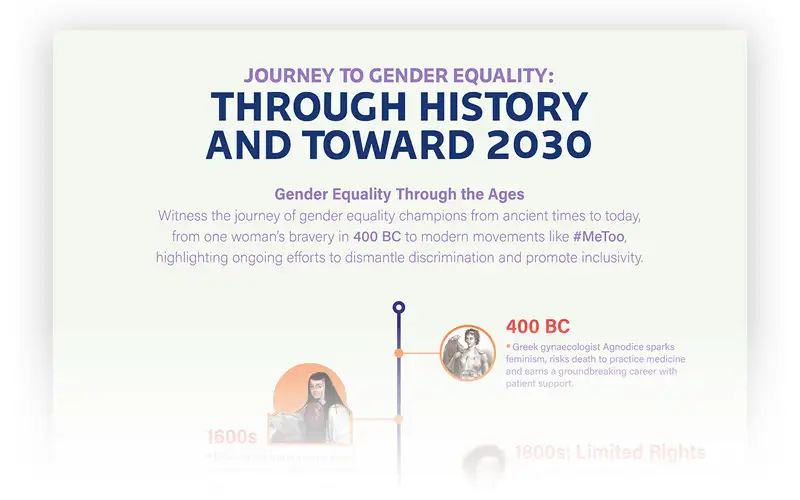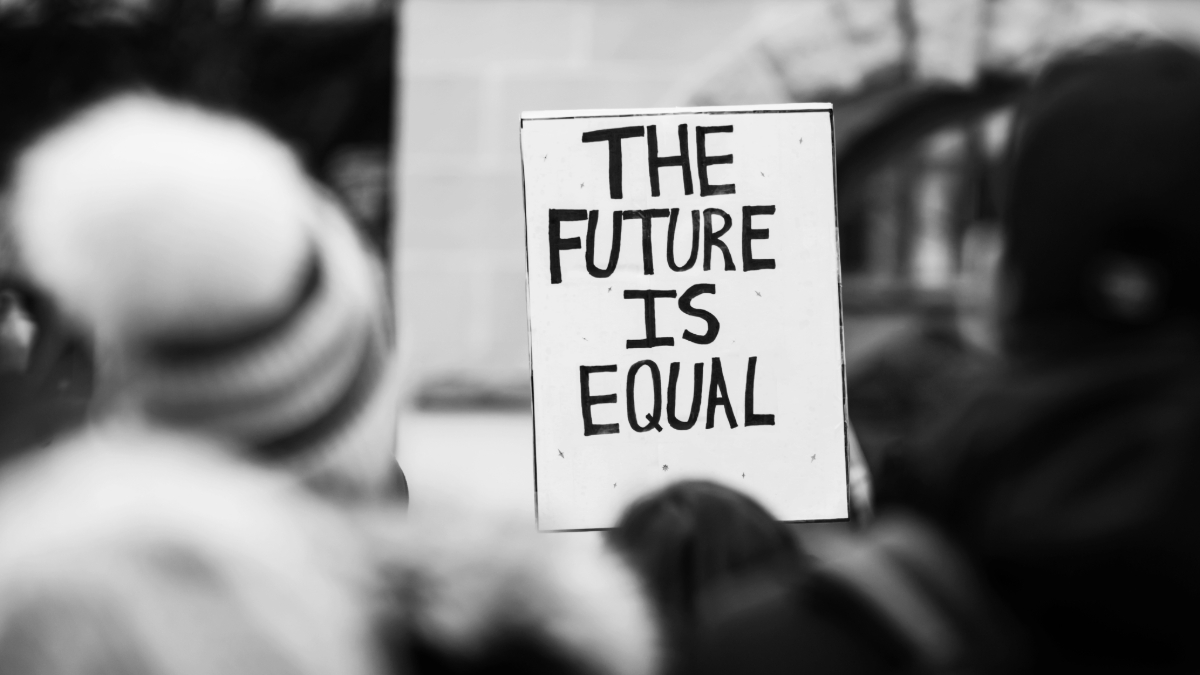Gender equality isn’t just a buzzword; it’s essential for fairness and justice. Its effects extend beyond benefiting women and girls, profoundly transforming communities and economies.
On Women’s History Month, let’s explore the impacts of equality initiatives pre- and post-implementation.
Before Equality Interventions
Before equality interventions, societies often struggled with systemic discrimination and inequality and limiting opportunities based on gender, race, or socio-economic status. This injustice manifested in various ways:
- Economic Disparities: Women and marginalised groups faced limited education access, barriers to workforce entry, and unequal pay, perpetuating poverty cycles and impeding economic growth.
- Social Exclusion: Discriminatory attitudes confined certain groups to society’s margins, curbing their civic engagement, decision-making, and access to vital services like healthcare and housing.
- Cultural Bias: Deep-seated norms reinforced gender stereotypes, limited choices, and perpetuated harmful practices like child marriages.
After Equality Interventions
Implementing equality interventions has sparked transformative changes, ushering in a new era of inclusivity, opportunity, and empowerment. Here’s how these interventions have reshaped policies, challenged societal norms, and cultivated diverse voices to foster a more equitable environment for all:
- Economic Empowerment: Equality interventions break down barriers to economic participation, fostering a diverse workforce. Increased access to education, skills training, and entrepreneurship for women and marginalised groups drives innovation and economic growth.
- Social Cohesion: Equality interventions promote diversity and inclusion, fostering greater social cohesion and solidarity. Communities embrace differences, promoting inclusivity and unity instead of division.
- Cultural Shift: Equality initiatives challenge traditional gender norms, empowering individuals to defy societal expectations. This cultural evolution grants greater freedom and autonomy, especially for women and the marginalised.
The broad impact of these interventions goes beyond gender equality, shaping fairness, justice, and inclusion throughout society in areas like the economy, education, and social activism.

‘Rise with RYTHM’: Advancing Gender Equality
Amidst endeavours to foster equality and inclusivity, RYTHM Foundation’s year-long ‘Rise with RYTHM’ campaign stands out as a beacon of positive transformation.
The campaign transcends mere activism; it embodies our movement to bridge divides and ignite profound change. In the realm of gender equality, it champions two pivotal sub-themes, each resonating with the promise of progress:
- Rise for People: This underscores gender equality and human rights, ensuring support for the vulnerable through access to equitable education, livelihood opportunities, and essential resources for community well-being.
- Rise for Progress: This highlights the importance of inclusivity and diversity for social cohesion through civic engagements, educational initiatives, and dialogues to advance gender equality and diversity.
As we reflect on the evolution of gender equality interventions, progress has been made, but there’s still work to be done. The journey towards true equality is ongoing and requires continued dedication, collaboration, and innovation.
By recognising the transformative power of equality interventions, we can collectively break down barriers, foster inclusivity, and create a more just and equitable world for all.







